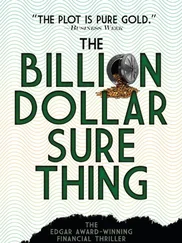Paul Moorcraft - The Anchoress of Shere
Здесь есть возможность читать онлайн «Paul Moorcraft - The Anchoress of Shere» весь текст электронной книги совершенно бесплатно (целиком полную версию без сокращений). В некоторых случаях можно слушать аудио, скачать через торрент в формате fb2 и присутствует краткое содержание. Жанр: Триллер, на английском языке. Описание произведения, (предисловие) а так же отзывы посетителей доступны на портале библиотеки ЛибКат.
- Название:The Anchoress of Shere
- Автор:
- Жанр:
- Год:неизвестен
- ISBN:нет данных
- Рейтинг книги:4 / 5. Голосов: 1
-
Избранное:Добавить в избранное
- Отзывы:
-
Ваша оценка:
- 80
- 1
- 2
- 3
- 4
- 5
The Anchoress of Shere: краткое содержание, описание и аннотация
Предлагаем к чтению аннотацию, описание, краткое содержание или предисловие (зависит от того, что написал сам автор книги «The Anchoress of Shere»). Если вы не нашли необходимую информацию о книге — напишите в комментариях, мы постараемся отыскать её.
The Anchoress of Shere — читать онлайн бесплатно полную книгу (весь текст) целиком
Ниже представлен текст книги, разбитый по страницам. Система сохранения места последней прочитанной страницы, позволяет с удобством читать онлайн бесплатно книгу «The Anchoress of Shere», без необходимости каждый раз заново искать на чём Вы остановились. Поставьте закладку, и сможете в любой момент перейти на страницу, на которой закончили чтение.
Интервал:
Закладка:
But Duval answered her seriously. “I hope I am not an unthinking Catholic. My early conversion changed me. You don’t know how much less tolerant I would be if I hadn’t become a Catholic…” He paused, waiting for a response. Marda did not move a single muscle on her face, and there was silence for a few seconds. Then he continued, as though he was discussing the weather: “But I have my healthy scepticism. In some ways I tread my own path. I have my doubts about big organisations such as the Church. They grow bureaucratic, the arteries become sclerotic. They insist on absolutes. You know, the Curia in the Vatican is a bit like the Politburo in Moscow. Both Catholics and communists are alike in assuming that an opponent cannot be honest and intelligent. But I digress…”
He stopped, peered through the grille, and turned his gaze directly to Marda, “All right, let’s start at the beginning. Who made you?”
“Well, God, I suppose.” Marda was somewhat taken aback by the question.
“You are not sure.”
“No,” Marda paused, “but maybe there are various gods.”
“No.” Duval started to recite: “There is the one God, who is three-with His Son, Jesus Christ, and the Holy Ghost, the Holy Spirit if you like. Again, who made you?”
“God.” Marda felt like a chastened schoolgirl.
“And why is there a God, do you think?”
“To guide us?” she hazarded.
He prompted her: “To provide moral limits, moral goalposts perhaps?”
“Yes,” she said quickly, “that’s a good way of putting it.” Marda gathered her thoughts. “Um, I don’t believe in organisations, either. Yes, I suppose I should know my Bible better, but I try to act according to my own conscience. I try to develop my talents-if I have any-to the best of my own ability, without hurting anybody else.”
She paused to wipe her runny nose with the edge of her finger.
“I don’t need an organisation to tell me what to do,” she continued, “but I suppose that God’s word has been interpreted over the centuries-by the Catholic Church and others-and that provides me with the essence of what I believe, as an individual. So, I suppose, God has provided us with morality.”
Duval waited for her to finish, then said “I don’t know if you understand the philosophical implications of what you have just said, but you are developing the theory of moral relativity.”
“I don’t have a theory; I just try to do what is right.”
“Perhaps,” replied Duval, shifting from one foot to the other, “but if we become too relative, too individualistic, then we might as well decide whether the earth is God’s plaything, His golf ball if you like, or rather-to turn the argument on its head-maybe our role is not to worship God but to create him…that black cat which isn’t there in the pitch-black room. But we do need God, whether we feel Him intellectually or emotionally. And so we are back to faith again.”
He changed tack. “Let me play devil’s advocate: if God cannot make us become better, then perhaps it’s time to get rid of Him. No God, no faith, no nothing…God, however, is necessary for the human condition.”
He sighed, enjoying flexing his intellectual muscles, but felt that at this stage it was probably rather in vain. “Why did God make you, Marda?”
Not to listen to you, you monster, Marda thought, keeping her face neutral.
“Take your time, Marda. I like a considered reply. Not just something flippant, off the top of your head, just to please me. I want the truth at all times. God will know if you lie, and we can hide nothing from Him. So let us try that again: why did God make you?”
“We both make the assumption that there is a God. Then His purpose would be for us to live on earth and be good Christians…or Muslims…or Buddhists, if that’s what you believe. That’s my first thought. But I know that some people want to live in heaven. I’ve never fancied the idea of harps and clouds and all that. I might when I’m sick and old, but not now. As for good Christians, what is ‘good’? Presumably priests are supposed to be good.” She bit her lip slightly, but Duval ignored her ironic parry.
“I am not good,” he said, trying to sound humble, “but in my own small way I try to bring people to God.”
Yes, thought Marda, you put the fear of God in people, but she continued to play along. “And, Michael,” she asked, “are people who are not Christians not good? Can a Buddhist be a good person? Or a Jew? At least by our”-she emphasised the “our”-“definition, as Christians, I mean.”
“Excellent, Marda,” smiled Duval, “you are thinking about God. I suppose you have thought more about Him in the last few days than in all your life.”
Marda’s big eyes flickered nervously, but Duval carried on excitedly. “Let’s try to learn the basic rules and then we can move on to debate. We can discuss good and evil later. I do believe there is evil, I must say. It is tempting to deny the existence of Satan since it removes the need to fight Him. It is so easy to slip back into moral relativism. You might know the saying: kill one person and you are a murderer, kill millions and you are a conqueror. But if you kill everyone, you are God.”
Marda nodded politely, completely appalled.
“I enjoy talking to you, Marda,” said Duval expansively. “I feel very confident about you, but we are running before we walk. Let us get back to God’s purpose.”
Duval stopped and stared at her for a moment, then continued, “Of course there is the classic dilemma. If God is perfectly loving, He must by definition wish to avoid evil, and if He is all-powerful He is able, also by definition, to abolish evil. But evil exists-I suppose you think me evil, Marda? — and therefore, God cannot be both omnipotent and perfectly loving. Do you see?
“Or take our situation here. Even if you think me evil, and let us agree that in some circumstances I may be evil-no one is perfect of course-then let me suggest that even here good can come from evil, that new life can come from old. Christ’s crucifixion was an utterly despicable historical act, but from this sacrifice emerged the New Testament, Christianity and the possibility of redemption on a world scale. So what seems a bad action may actually be good. Do you understand?”
Marda frowned, and deliberately did not answer.
“I shall give you a Catechism to read and learn,” Duval continued, not really having expected an answer. “Initially I shall allow you to have one hour’s light a day to read the Catechism and a Bible which I shall also give you. If you use this period fruitfully, I shall extend the reading time. Later, if your studies go well, I shall give you some paper so you can make your own notes.
“When I go I want you to think about your soul.”
Marda thought he was about to leave, but Duval rambled on about the soul and its immortality. She came to realise that often he wanted to indulge himself in long monologues. Despite his excellent memory, he would sometimes repeat himself.
When he touched on faith again, he suddenly asked Marda, “Where is God?”
Her mind had been wandering and she was not prepared for the question. “I’m sorry, I don’t know,” she stuttered.
“ Ubique. The answer in the Catechism is ‘God is everywhere,’” he said confidently.
“Well, He’s not bloody well here, is He?” she blurted out, unable to hold back the tears any longer.
Duval stood back, disappointed. “Ah, Marda, you were doing so well until now. I don’t like this kind of facetiousness-which, by the way, is also blasphemous. Since this is just the start, and you have had a difficult few days, I shall be lenient on this occasion. For two days you will have no light, and you will have only plain bread and water. Now I know you do need more nourishment, and I was about to add, for example, some cardamom to your coffee and put some fenugreek seeds in the bread; that is so good for your digestion. But if you insist on being a poor and recalcitrant pupil, you have only yourself to blame.”
Читать дальшеИнтервал:
Закладка:
Похожие книги на «The Anchoress of Shere»
Представляем Вашему вниманию похожие книги на «The Anchoress of Shere» списком для выбора. Мы отобрали схожую по названию и смыслу литературу в надежде предоставить читателям больше вариантов отыскать новые, интересные, ещё непрочитанные произведения.
Обсуждение, отзывы о книге «The Anchoress of Shere» и просто собственные мнения читателей. Оставьте ваши комментарии, напишите, что Вы думаете о произведении, его смысле или главных героях. Укажите что конкретно понравилось, а что нет, и почему Вы так считаете.












